List of Protozoan Diseases in Humans & Their Signs/Symptoms
There are millions of microorganisms in the world that are invisible to the naked eye. These organisms can easily enter the human body and cause severe health issues.
One such group of multicellular microorganisms is called protozoa that can infect the organs and cause organ failure, fever, vomiting, headache, muscle pain, abdominal pain, and cough.
Keep reading to learn about the diseases caused by protozoa and their treatment methods.

Table of Contents

What are Protozoa Diseases?
Protozoa diseases refer to an aggregate of diseases caused by protozoa, single-celled organisms that cannot be readily seen with the naked eye. These microorganisms usually enter bodies via contaminated foods, water, or insect bites. The popular protozoa illnesses involve malaria transmitted by mosquitoes and amoebiasis associated with the intake of unclean water.
Although these ailments can make you sick, the severity depends mainly on the type of protozoa and overall health. The good news is that they can be cured with specific drugs.
What are the Causes of Protozoa Diseases?
Most protozoal disorders in humans can be caused by microscopic protozoa entering the body through water pollutants or mosquito bites. The protozoa infect various organs, causing complicated health issues.
Protozoa exist either symbiotically or independently with other living things. Protozoans often form cysts, which enable them to survive harsh conditions like drought. A lot of protozoa can lead to diseases among people, particularly by way of water-borne routes.
Toxoplasma gondii, Isospora belli, Blastocystis hominis, Balantidium coli, Naegleria species, and Acanthamoeba species are some examples of critical pathogenic protozoans. Various diseases emanating from the above organisms may profoundly impact the overall condition of the patient's health.
What Are the Types of Diseases Caused by Protozoa in Humans?
Here is a list of 10 diseases caused by Protozoa commonly found in humans.
1. Malaria
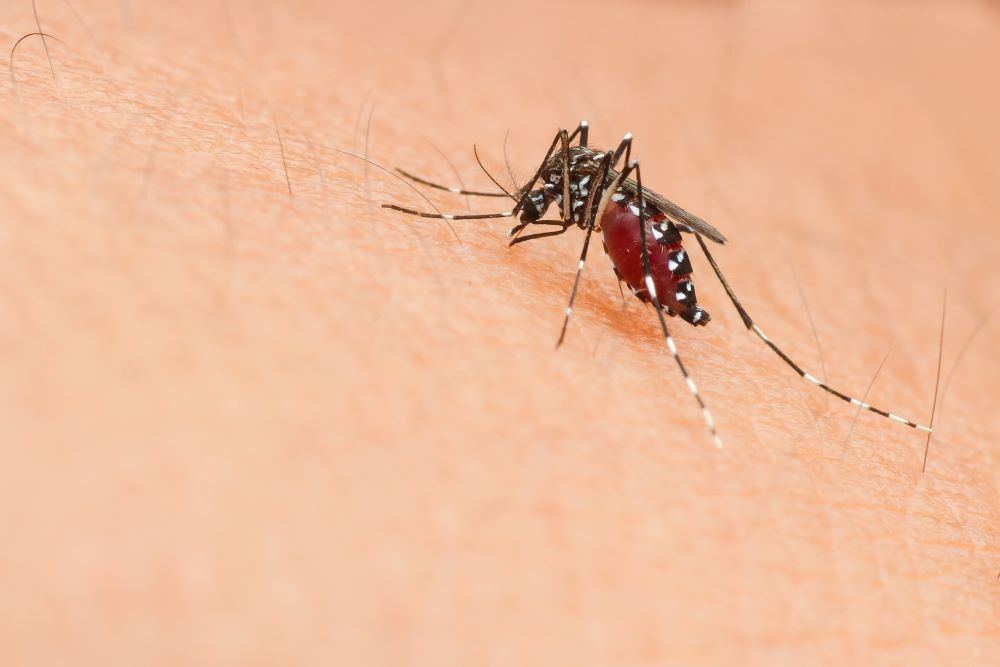
Malaria is a mosquito-borne infection that can cause seizures, yellow skin, coma and death. It occurs when a female Anopheles mosquito carries the protozoa and infects a human being by biting. This serious disease requires immediate medical attention to prevent severe complications and ensure effective treatment.
2. Amoebiasis
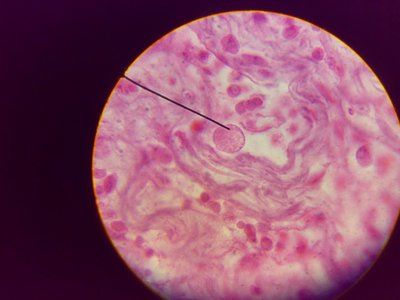
Poor hygiene and living conditions can lead to this gastrointestinal infection. Amoebiasis is caused by the parasite Entamoeba histolytica and can result in symptoms such as abdominal pain, diarrhoea, and, in severe cases, liver abscesses. Proper sanitation is crucial for preventing Amoebiasis.
3. Chagas disease
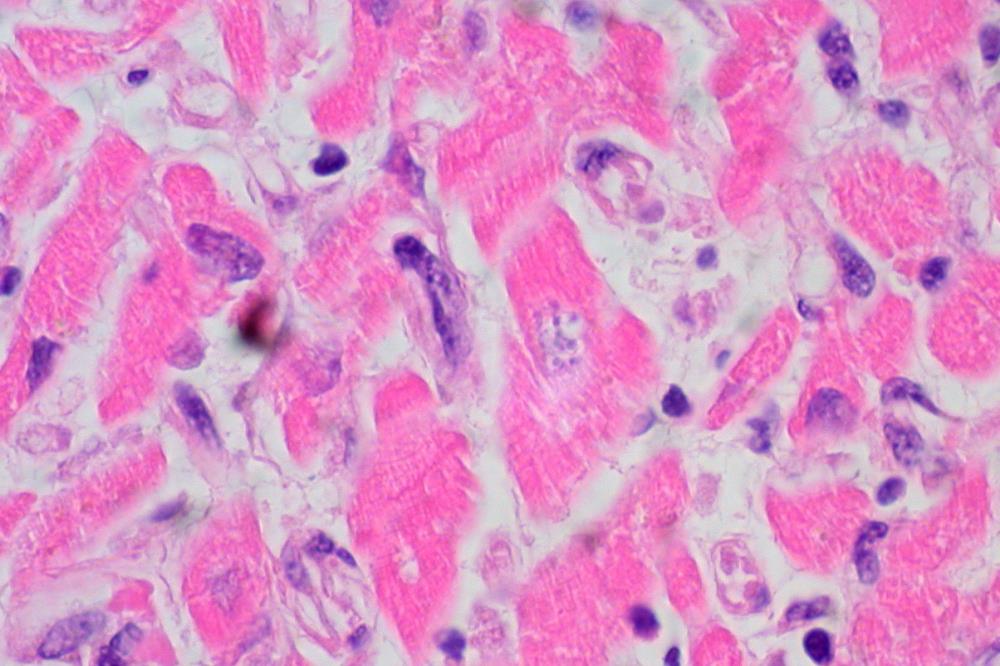
The Trypanosoma cruzi parasite causes this disease, leading to redness and swelling in the infected area. Other symptoms include swollen lymph nodes, nausea, diarrhoea, and extreme fatigue. Early diagnosis and treatment are crucial to prevent the progression of chronic complications and ensure effective disease management.
4. Babesiosis
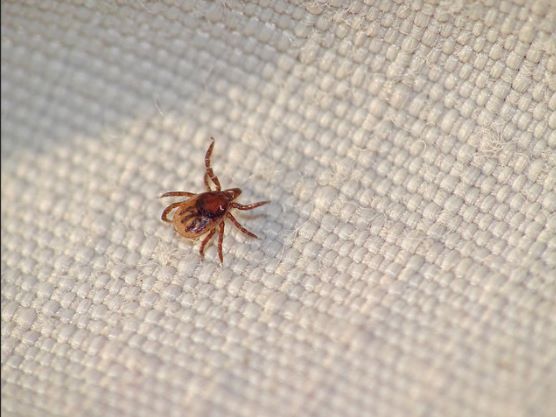
Parasite Babesia microti infects the red blood cells and damages an individual's immune system. This disease, transmitted by ticks, can cause symptoms such as fever, chills, and fatigue. It is essential to seek prompt treatment to manage the condition and mitigate potential complications effectively.
5. Giardiasis
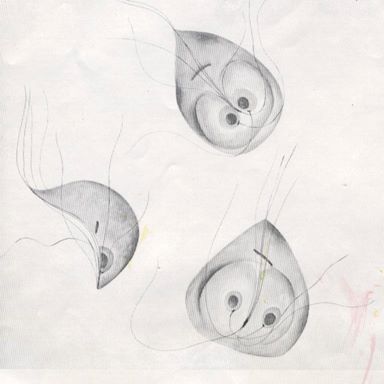
The parasite giardia causes this infection in the intestinal tract. Giardiasis is spread through contaminated water or food, leading to symptoms like diarrhoea, abdominal cramps, and nausea. Access to clean drinking water and good hygiene are crucial for preventing giardiasis. Treatment involves prescription medications like metronidazole or tinidazole.
6. Lambliasis
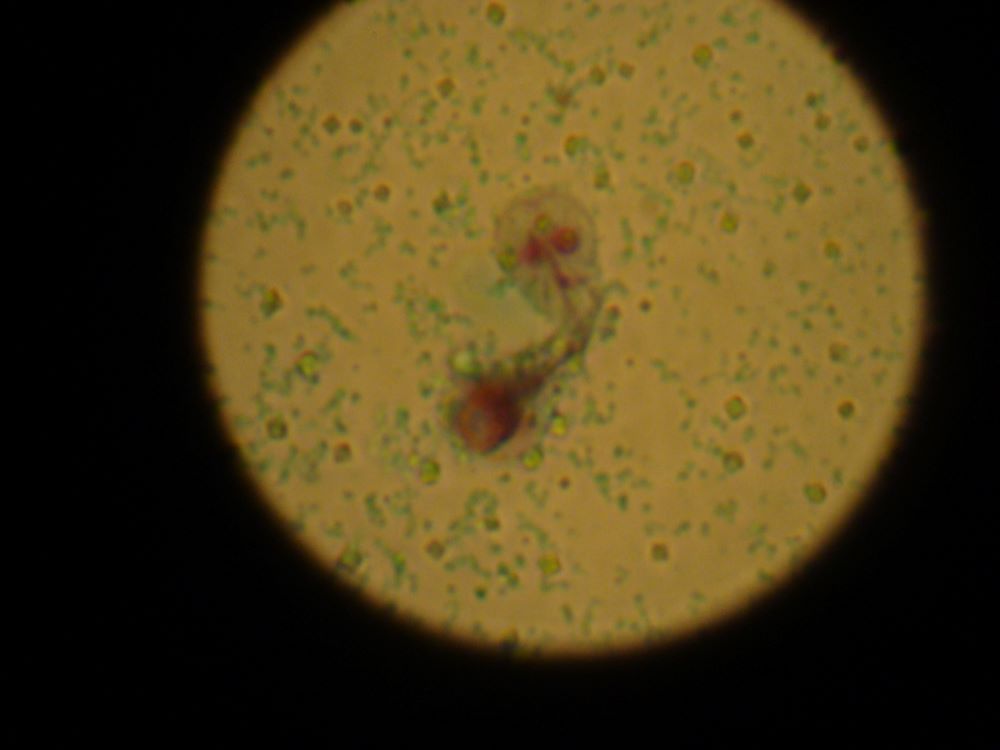
Giardia lamblia, a parasite of the small intestine, causes lambliasis. The protozoa are transmitted through contaminated drinking water or food. This infection can cause gastrointestinal issues such as diarrhoea and abdominal pain. Good hygiene and safe food practices help in preventing it. Antibiotic treatments like metronidazole or tinidazole eliminate Giardia lamblia.
7. Cryptosporidiosis
Apicomplexan protozoan, a member of the Cryptosporidium genus, causes this disease. It can infect the lungs and stomach. Symptoms include diarrhoea, stomach cramps, and nausea. Maintaining good hygiene practices and avoiding contaminated water are essential for preventing this infection.
8. Trichomoniasis
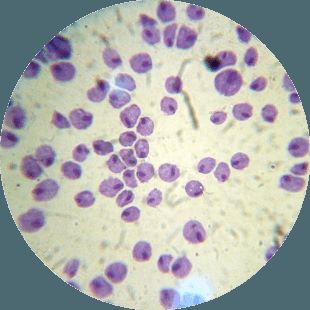
It is a sexually transmitted disease caused by Trichomoniasis Vaginalis. Both men and women may experience burning and itching in the affected areas. Prompt diagnosis and treatment are crucial to effectively manage the symptoms and prevent further transmission of the infection. Regular screening and practising safe sex can help reduce the risk.
9. Toxoplasmosis
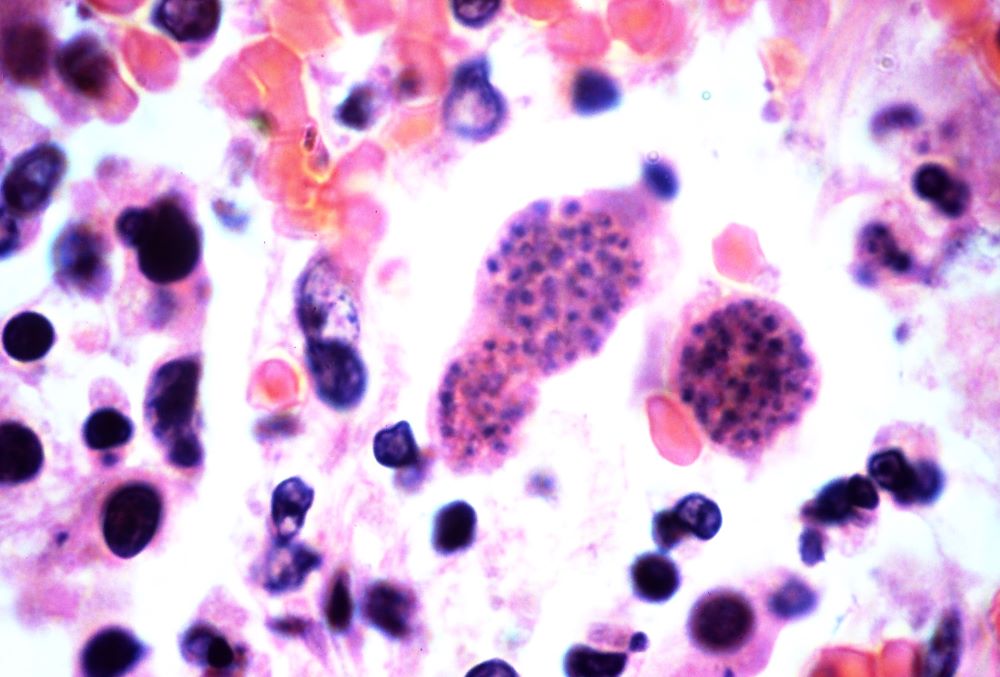
Toxoplasmosis infects the eye, brain and lymph nodes causing significant infections.Toxoplasmosis infects the eye, brain, and lymph nodes, causing significant infections. The parasite Toxoplasma gondii can lead to serious health issues, particularly in individuals with weakened immune systems. Early diagnosis and treatment are crucial for managing the infection effectively and preventing severe complications.
10. Blastocystis
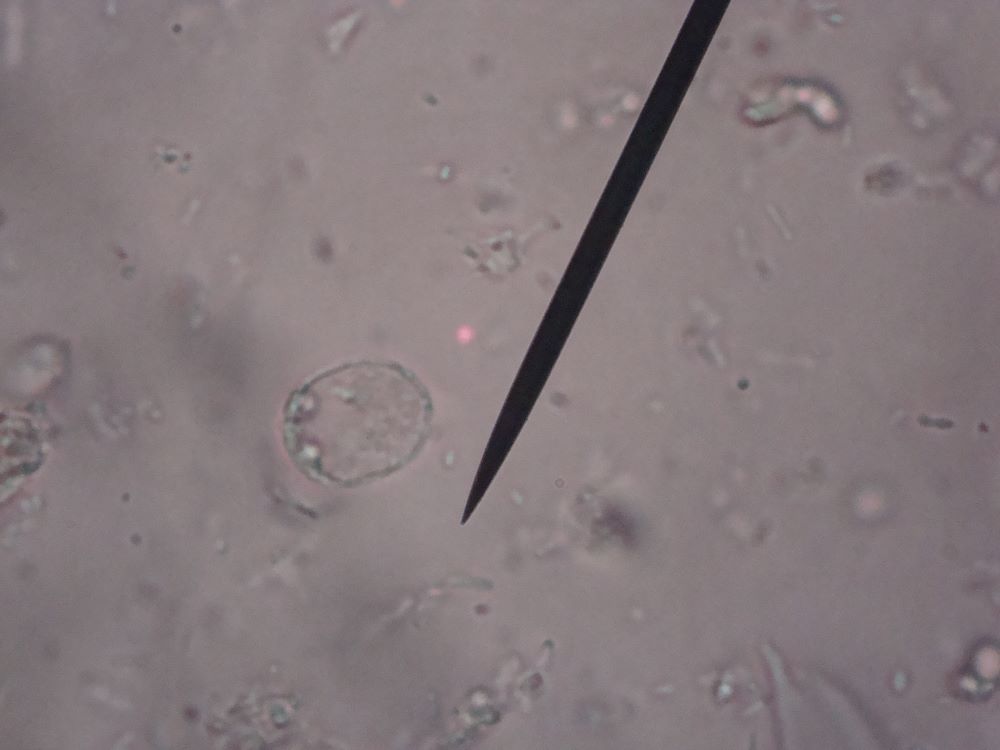
It is an asymptomatic disease caused by protozoan Blastocystis hominis that infects the digestive tract. While often asymptomatic, it can sometimes cause gastrointestinal disturbances. Good hygiene and medical consultation can assist in managing this condition. Treatment is recommended if symptoms are present or if the infection is causing significant discomfort.
Other diseases caused by Protozoa include -
African Trypanosomiasis
Trypanosoma brucei gambiense and Trypanosoma brucei rhodesiense cause African Trypanosomiasis in humans. The protozoa spread through the Tsetse fly bites.
Amoebic dysentery
Entamoeba histolytica leads to diarrhoea and gut problems. This Amoeba can pass through the intestine walls and reach an individual’s bloodstream and infect his/her liver.
Once the types of protozoa-borne diseases are clear, let’s check the symptoms of protozoa infection to keep a tab over the bodily changes.
What Are the Signs and Symptoms of Diseases Caused by Protozoa?
The signs of protozoan infections vary across the types of single-celled parasites causing infections and the organ they attack and manifest in.
However, some of the common symptoms include -
- Fever
- Headache
- Muscle pain
- Vomiting
- Abdominal pain
- Cough
- Diarrhoea
- Swollen lymph nodes
- Weight loss
- Nausea and extreme fatigue.
Certain parasitic infections can be asymptomatic, which can cause major issues in future. Hence, it is essential to consult a doctor and practice regular body checkups.
What Are the Damages Caused by Protozoa in Humans?
Ignoring protozoa-borne diseases can cause significant damage to the body. Some of the harmful effects of Protozoa infections are as follows -
- Patients with African sleeping disease can develop severe skin rash and neurological problems.
- Ignoring symptoms of Malaria or treatment procedures can lead to significant harm. A patient can suffer convulsions, organ failure and issues in the circulatory system.
- Babesiosis can be life-threatening for patients with weak immune systems.
- The parasites can infect the brain, lungs and stomach.
- Sexually transmitted parasites can lead to smelly and white discharge from the reproductive organs.
Besides, it is also essential to know the risk factor linked with the said disease. This way, individuals prone to protozoa-borne disease can consult a doctor beforehand for prevention and treatment.
What Are the Risk Factors Associated With Diseases Caused by Protozoa?
Individuals should know that multiple factors can lead to protozoa infections in humans. For instance, food choices or environmental conditions can lead to protozoan diseases.
The common risk factors include-
- Aged individuals are prone to protozoan infection due to poor immunity
- Unprotected intercourse
- Poor sanitation
- Unclean water consumption
- Lack of hygiene
- Eating uncooked or raw food
- Poor immunity system
- Contact with animals
- Individuals who live in tropical or subtropical or regularly travels to these regions
- Seasonal changes
An earlier diagnosis can help individuals understand the causes of protozoa-borne and receive appropriate treatment.
How is Protozoa Disease Diagnosed?
Protozoa are quite challenging to identify with samples and culture. Pathologists can see them under a microscope by taking a sample of red blood cells or stool.
There are specific tests for the parasite that has infected the body. Some of the diagnostic procedures are -
Let’s check the treatment methods healthcare professionals suggest for the disease.
What Are the Treatment Methods for Protozoa Disease?
he treatment procedure depends on the type of protozoa that has caused the infection.
However, here are some standard treatment processes that doctors suggest to treat protozoa-borne diseases.
- A doctor would recommend antimalarial drugs like quinine, chloroquine and mefloquine to fight Malaria.
- They can prescribe metronidazole or tinidazole for amoebiasis. They suggest taking suramin, pentamidine and nifurtimox to cure African sleeping diseases.
- Treatment also depends on the drug resistance of protozoa and its impact.
The recovery period of most protozoan diseases depends on the patient's immunity. It can take up to two weeks to recover entirely without medications in some instances.
Individuals can also opt for preventive measures to avoid protozoa infection.
What Are the Preventive Measures to Control Diseases Caused by Protozoa?
There are several steps to lower risk of contracting a parasitic infection. Some of these are as follows -
- Individuals should avoid touching cat litter and faeces during pregnancy.
- Avoid drinking water from ponds, streams or lakes.
- Eat only cooked food.
- Wash fruits and vegetables thoroughly before consuming.
- Boil and filter water before drinking.
- Use a condom during intercourse.
- Wash hands regularly.
- Clean car handles and public properties before touching them.
Does Health Insurance Cover Protozoan Diseases?
Most health insurance plans cover Protozoa Diseases. These conditions, like Malaria and Amoebiasis, are handled like any other illness. Usually, a health policy covers doctor visits, lab studies, drugs, and hospitalisation charges associated with treating protozoa-related diseases.
However, it is essential to look over your plan’s details, as they may differ depending on your policy.
The above discussion on diseases caused by protozoa and their treatment procedure will help you understand this concept. Individuals should consult a doctor when symptoms of protozoa infection occur. They can check the list of protozoan diseases and consult a doctor for detailed information on their infection.










